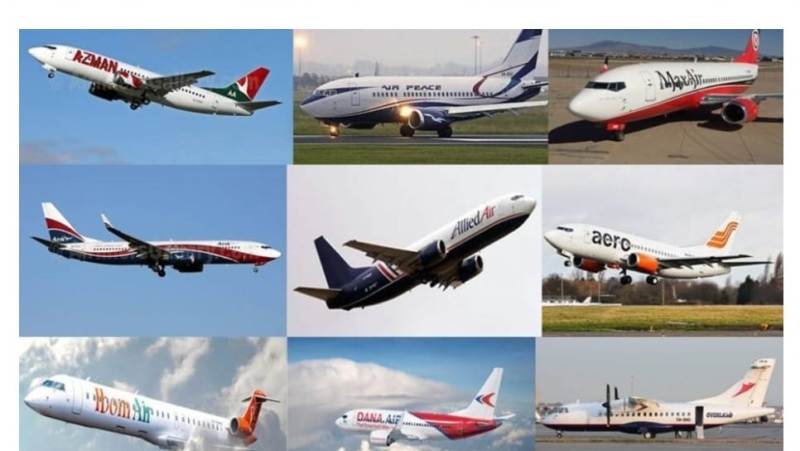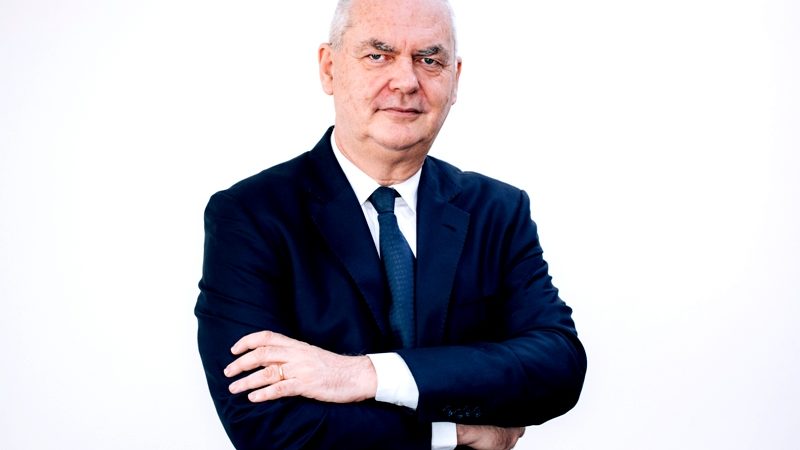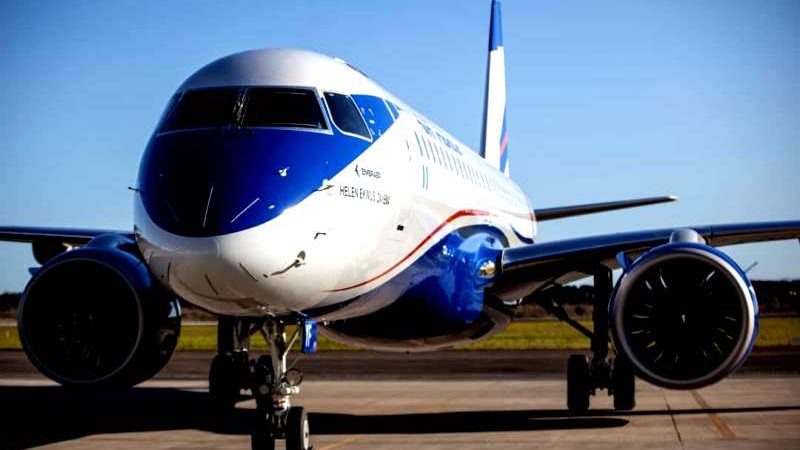Abuja, Kano, Port Harcourt, Qatar’s Most Connected Markets In Africa, Says VP

MR. HENDRIK DU PREEZ, Vice-President, Africa, Qatar Airways in this interview with AVIATION MONITOR, speaks on Qatar Airways’ activities in Africa, the place of Nigeria in its operations, the airline’s experience as well as an evaluation of the African market performance.
Q: AT THE BEGINNING OF MARCH 2023, QATAR AIRWAYS INCREASED WEEKLY FLIGHTS INTO ABUJA AND PORT-HARCOURT FROM TWO TO THREE, AS WELL AS THE ABUJA-KANO FLIGHTS FROM THREE TO FOUR. COULD YOU SHARE SOME INSIGHTS INTO THE FACTORS THAT INFLUENCED THIS DECISION AND PROVIDE AN UPDATE ON THE PROGRESS OF THIS PLAN, WHILE SHARING YOUR EXPERIENCE THUS FAR?
A: Since COVID-19, Qatar Airways has continuously reviewed operations, seizing every chance to scale up and expand. Nigeria stands out as one of the countries rebounding swiftly post-pandemic, evident in its market resurgence, prompting the surge in flights. As widely recognised, Lagos, Kano, Port Harcourt, and Abuja represent distinct markets, each complementing the others. The growth in these areas prompted Qatar Airways to enhance flight frequencies, catering to increased demand and offering expanded capacity to the market.
Q: WHAT ARE THE KEY CHALLENGES THAT QATAR AIRWAYS IS ENCOUNTERING IN ITS OPERATIONS WITHIN AFRICA AND NIGERIA SPECIFICALLY?
A: The cost of doing business in Africa poses a significant challenge, not only for Qatar Airways, but for every airline operating in the region. It notably exceeds costs in many other parts of the world. The widespread devaluation of currencies has further deterred people from travelling. Another challenge pertains to airport infrastructure. Nonetheless, recent years have witnessed increased investments in improving this area by several countries. There are new airports opening up all over Africa. Nigeria, for instance, recently transitioned to a new terminal in Lagos. Similarly, a new airport in Luanda was opened – both reflecting such ongoing advancements across the continent.
Q: NIGERIA REMAINS YOUR MOST CONNECTED MARKET. HAVE THE SAME FACTORS, AND POSSIBLY OTHERS HAD ANY POSITIVE OR NEGATIVE IMPACT ON YOUR OPERATIONS IN NIGERIA?
A: Nigeria is one of the top three most populous countries in Africa, and it is one of the markets that was probably underserved before COVID-19. We saw the opportunity to expand our capacity by, first, increasing our Lagos flights, and then, adding Abuja, Kano, and Port Harcourt networks to the list. We can say that this is the most connected market we have in Africa. In Africa, at this stage, our perspective is long-term. We have made massive investments in Nigeria over the last few years and even with the current challenge of inflation the country is constantly facing, we believe that it would still pay off in the coming future.
Q: HOW WOULD YOU EVALUATE THE OPERATIONAL PERFORMANCE OF QATAR AIRWAYS IN AFRICA DURING 2023, CONSIDERING FACTORS SUCH AS REDUCED BUYING POWER, REGULATIONS AND THE EFFECT OF INFLATION ON REVENUE?
A: This year marks a significant shift since the onset of COVID-19, where a return to normalcy is emerging. Pre-COVID trends are resurfacing; there’s still evident pent-up demand reflected in people’s booking behaviour. To accommodate this surge in Africa, we’ve implemented systems to bolster our capacity. During the pandemic, we introduced several new routes and eight destinations, many of which have rapidly gained popularity. Despite our efforts to increase capacity, challenges persist, particularly in Nigeria, where buying power remains a hurdle amidst soaring inflation across various African countries. The currency devaluation has significantly impacted several nations, including Nigeria and Egypt. Malawi, most notably, devalued its currency by 44% just recently. However, we’ve learnt to keep a perspective of adapting to these landscape changes, whether that be decreasing capacity during certain periods, and increasing when we see demand go up again. It’s that agility that gives us a big advantage.
Q: BESIDES NIGERIA, GHANA AND COTE D’IVOIRE, QATAR AIRWAYS’ PRESENCE IN WEST AFRICA APPEARS TO BE LIMITED. IS DEMAND PERHAPS LIMITED ONLY TO THOSE THREE MARKETS?
A: As previously mentioned, we consistently evaluate opportunities for expanding across various African markets. Following the introduction of our daily Lagos flight, we additionally inaugurated services to both Accra and Abidjan, during the COVID-19 period. Furthermore, we capitalize on partnerships with partner airlines that facilitate passenger transit from these markets to our hubs. While we don’t have direct flights to these locations, we serve them by proxy and continue to review opportunities to open more markets in West Africa; hopefully within the next year or two.
Q: AVIATION IS A FIERCELY COMPETITIVE INDUSTRY WITH VERY LOW PROFIT MARGINS. AS AN ORGANIZATION, HOW DOES QATAR AIRWAYS PERCEIVE THE COMPETITION IT FACES IN ITS OPERATIONS WITHIN AFRICA AND NIGERIAN CITIES IN PARTICULAR?
A: Competition isn’t always negative; often, it stimulates more people to fly, aiming to expand the aviation market and provide more individuals with the opportunity to travel. Despite comprising roughly 17% of the world’s population, Africa’s share in the global travel demographic stands at only 2%. This indicates a large room for growth on the continent. I maintain my belief that although the African market remains underserved, there are numerous prospects in the next five to 10 years. One of the most significant challenges hindering this growth is the cost of travel throughout the value chain. Procuring fuel in Africa often proves more expensive compared to many other global regions, amplifying the overall cost of operations. Additionally, airport operations in Africa tend to be notably costlier than elsewhere. Addressing these issues requires collaboration with governments to reassess regulations and seek ways to facilitate easier travel. Increased travel not only bolsters economies but also contributes to scaling down prices.
Q: WHO ARE THE TYPICAL TRAVELLERS FILLING YOUR AIRCRAFT AND WHERE ARE THEY HEADING TO (TOP CITIES) AND WHERE ARE THE INBOUND COMING FROM (TOP CITIES)?
A: To a certain extent, there has been a change observed when comparing the past three years to the past 12 months. Travel patterns have gradually reverted to the state they were in pre-COVID times. Nigeria, in particular, maintains its traditional travel routes: where the UK remains a top market, London primarily for outbound travel, while the US also ranks high as an outbound market due to visits to friends and relatives. With the gradual reopening of the Far East, there’s been a noticeable resurgence in traffic, notably towards China and the Middle East. Furthermore, inbound traffic from China and Asia – particularly India – has increased significantly, alongside intra-Africa travel. The predominant travel routes within Africa are observed between Lagos and Johannesburg, notably facilitated by travellers coming via Doha for flights to and from Johannesburg. The primary traffic is often linked to diaspora communities globally and students returning to their respective schools, predominantly in the US.
Q: THE AVIATION INDUSTRY IS RAPIDLY EVOLVING, WITH EMERGING TECHNOLOGIES AND MOST CRUCIALLY CHANGING CUSTOMER EXPECTATIONS. HOW IS QATAR AIRWAYS ADAPTING TO THESE CHANGES?
A: That’s quite an extensive question considering the rapid pace of developments, particularly in the realm of AI. Over the past few years, there has been significant discourse surrounding AI, with its prevalence intensifying recently. Machine learning, among other technologies, has been seamlessly integrated into our operations, albeit discreetly, enhancing the customer journey. For instance, the implementation of biometrics to streamline check-in facilities exemplifies our utilization of these advancements. The reliability of these technologies hinges on their widespread adoption by most countries, considering the legislative framework required for universal acceptance. Presently, we’re swiftly advancing in implementing NDC (New Distribution Capability). This facilitates an easier shopping experience for our customers, a development we are actively rolling out. I’ve long believed that one of Africa’s most significant opportunities lies in mobile technology.
Q: SEEING HOW FOOTBALL GENERALLY CONTRIBUTED TO THE INFLUX OF AFRICANS TO DOHA DURING THE LAST FIFA WORLD CUP, QATAR 2022, DO YOU THINK THAT THERE IS A CHANCE TO PARTNER WITH AFCON TO ENJOY SIMILAR FEATS?
A: The renewed collaboration will include the FIFA World Cup 26™, FIFA Women’s World Cup 2027™, and FIFA World Cup 2030™, as well as youth tournaments starting with FIFA U-17 World Cup™ in Indonesia. Qatar Airways has been a top-tier FIFA Partner since 2017. Most recently, we renewed our collaboration, extending it through to 2030. As FIFA’s Global Airline Partner this agreement extends to the FIFA World Cup 26™, FIFA Women’s World Cup 2027™, and FIFA World Cup 2030™, as well as youth tournaments starting with FIFA U-17 World Cup™ in Indonesia. This clearly places football at the forefront of our focus. During the FIFA Women’s World Cup in Australia, we facilitated transportation for numerous women’s teams. Our close collaboration with various football federations across Africa allows us to assist them in their travel needs. Drawing from our extensive experience with sports travellers, we aim to ensure that travel arrangements for each of our partner teams are seamless. Our expertise in facilitating travel for professional athletes worldwide is extensive, and we hope to apply this experience to the AFCON as well. Globally, we’ve made significant investments in sports sponsorships. Our flagship engagements include F1 in Africa and our sponsorship in rugby with the URC.AM







